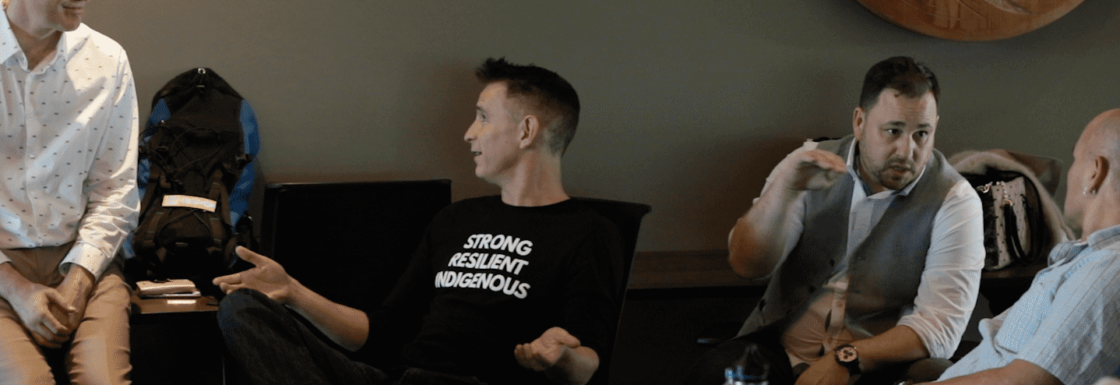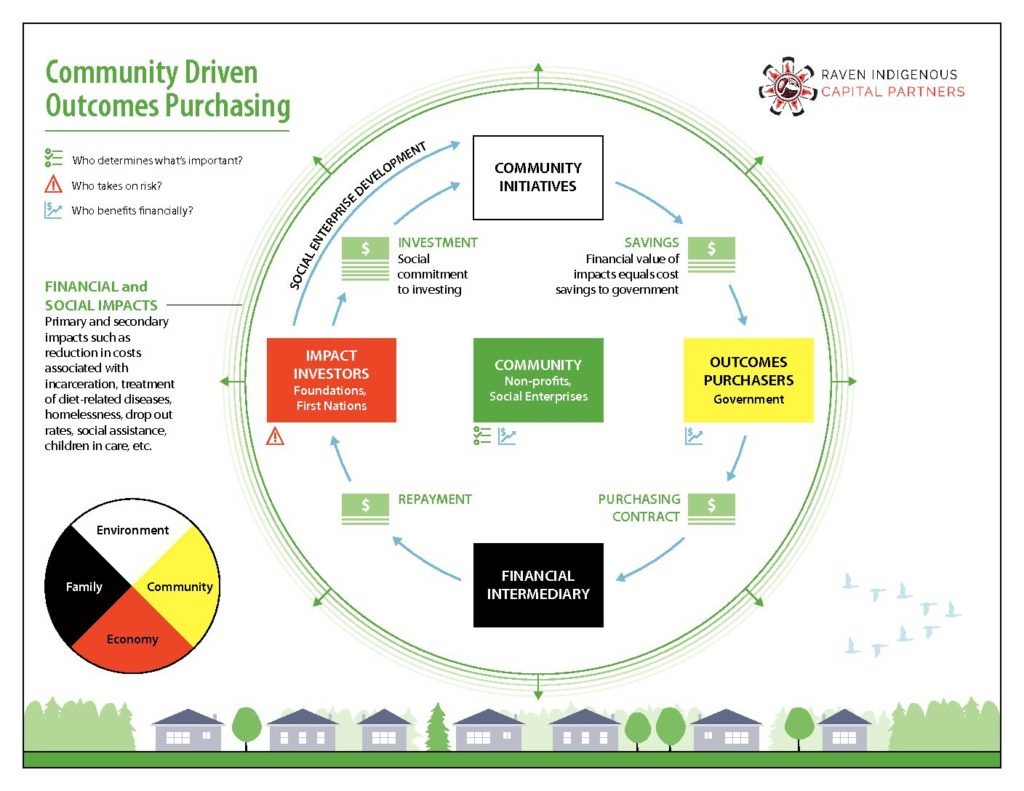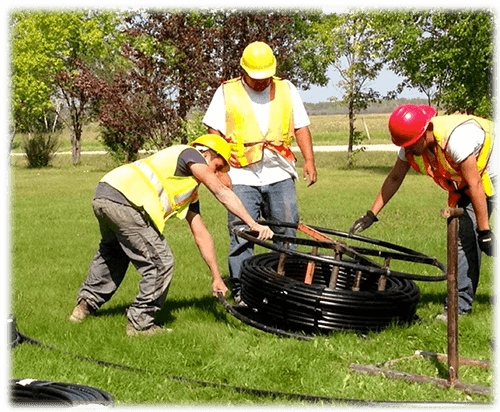Driving Sustainability from the Grassroots with Indigenous Partners: A Field Guide

Indigenous entrepreneurs and communities don’t currently have access to the same resources – financial or otherwise – as their non-Indigenous counterparts. Paul Lacerte and Jeff Cyr of Raven Indigenous Capital Partners are aiming at changing that reality.
Raven Indigenous Capital Partners exists because Indigenous entrepreneurs and communities don’t currently have access to the same resources – financial or otherwise – as their non-Indigenous counterparts. Over recent years, it’s become increasingly clear to all Canadians that we, as a nation, have reached an inflection point in our relationship with Indigenous Peoples. We are aware of the injustice and cruelty that have marred our history and continue to affect our existing systems and institutions. We know that as a collective we can do better. Doing better – by empowering Indigenous entrepreneurs and communities with what they need to truly succeed – is our mission at Raven. We accomplish this in various ways: through innovative social finance instruments; through our Indigenous Impact Fund; through Indigenous Solutions Labs that tackle a variety of issues; and by working directly with entrepreneurs and communities to build their capacity to fully participate in the economy and society.
The Raven team is honoured to be the recipients of a 2020 Clean50 Award for our work on an innovative social finance instrument we call the Community-Driven Outcomes Contract (CDOC). The CDOC gives decision-making power back to communities by asking them what outcomes they would like to see from a proposed project before engaging investors or outcomes purchasers in the process. It is critical that the money doesn’t drive the process – but that the community does.
“Over recent years, it’s become increasingly clear to all Canadians that we, as a nation, have reached an inflection point in our relationship with Indigenous Peoples… Doing better – by empowering Indigenous entrepreneurs and communities with what they need to truly succeed – is our mission at Raven.”
Paul Lacerte & Jeff Cyr
Our strong relationship with the award-winning Indigenous social enterprise Aki Energy led us to co-create the “outcomes contract”, which we are using to install 125 geo-exchange units in three Manitoba First Nations. This renewable energy project has created ten new jobs for community members (ensuring that the skills and knowledge learned remains in the community), will save community members thousands of dollars on their energy bills, and will save communities 1.5 million kWh of energy annually.
What’s the Problem?
Although reconciliation has become a household word, there are systematic impediments to Indigenous Peoples’ economic inclusion, growth, and wealth. Indigenous People continue to work uphill against the structural hurdles, policy, and legislative and regulatory barriers (including the Indian Act) that stand between them and success. Add to that the demonstrable lack of success that various agencies have had in addressing issues in Indigenous communities over the past 175 years and you have a bleak picture for what a possible future looks like for Indigenous People.
But it really doesn’t have to be this way.
Journey Towards a Solution
In 2016, the second annual Indigenous Innovation Summit was held in Edmonton. The Summit’s goal was to highlight and promote the incredible innovations that Indigenous People all over Canada were bringing to the fore – a marked contrast from the seemingly mainstream portrayal of Indigenous Peoples as being capable of little else than dysfunction. During the Summit, an Indigenous Innovation Demonstration Fund was created to help strengthen and scale Indigenous social innovations and social enterprises, since many of these projects/enterprises lacked access to mainstream capital. Aki Energy was one of the many applicants for the Demonstration Fund, wanting to scale its proven model for empowering individuals and communities using geothermal energy, but was turned down. The McConnell Foundation, a strong supporter of Aki’s work, proposed a peer-to-peer input process to help Aki Energy scale anyway.
At the time, Aki Energy was looking to scale its renewable energy work to on-reserve communities in Manitoba. However, it was concurrently facing several policy barriers to expansion despite the fact that its work had helped community members lower their electricity costs, gain valuable skills and work experience, acquire gainful employment, and overall seriously improved People’s lives. At McConnell’s suggestion, and with support from the Community Foundations of Canada, a 9-month innovation lab was held to address these problems.
During the lab, it became clear that Indigenous renewable energy projects presented an opportunity for a much larger impact than originally thought. But the policy barriers remained – so what to do? After several suggestions, social finance was brought up as a potential solution that provided capital without relying on government funding. Outcomes-based financial tools like social impact bonds were of particular interest, but the approach didn’t quite ring true to Aki Energy’s Indigenous values. That’s when the Raven team, alongside Aki Energy, Community Foundations of Canada, McConnell Foundation, and others, proposed a novel outcomes finance model: the Community-Driven Outcomes Contract. The Outcomes Contract’s uniqueness lay in its centring of community priorities; the partner communities were the ones who decided on the desired outcomes, rather than following the lead of investors or outcomes purchasers.

We had a model and it was just interesting enough to work. We needed to test it and collectively agreed to apply the CDOC to an initial 125 geo-exchange units in three communities. Relieved and excited, the Raven team set out to find the capital to finance the up-front project costs, as well as government partners to purchase the outcomes the community had set, such as job creation and lowered utility costs.
It was not always smooth sailing. Our first targeted outcomes purchaser decided that our work was not focused enough on on-reserve diesel reduction, so they decided not to fund the outcomes. We created the CDOC tool and its ancillary documents (for example, a term sheet, RateCard, service contracts) from scratch and were constantly running to give it the strong foundation we knew it needed. Originally, we were hoping to install 125 geo-exchange units in four communities, but the timing of the investment drawdowns (read: when Aki Energy actually got money to use for its work) didn’t align with the community’s needs, so we had to adjust.
The work – empowering Indigenous People and communities – was too important to let it slip, so we pressed on despite setbacks. We continued engaging potential investors and found several supportive impact investors who were willing to endure a little bit of risk for a solid rate of return and incredible impact; they were willing to be on the cutting edge of Indigenous social finance. One of our original co-creation partners, Community Foundations of Canada, agreed to be a central outcomes purchaser because they so thoroughly believed in the concept. Our circle was complete – we had investors, a service delivery agent (Aki Energy) working in communities, and an outcomes purchaser.
Where We Are Now
We are now well on our way with Canada’s first-ever Community-Driven Outcomes Contract. The Raven team jointly secured $4.3 million in investment capital, with a $5.1 million outcome purchase, giving investors a 4% rate of return on their investment. Our three partner communities – Fisher River First Nation, Peguis First Nation, and Sagkeeng First Nation – will have a combined total of 125 new geo-exchange units installed in the coming months. As a result, community members will be trained in geothermal installation and maintenance, new jobs have been created, individuals can get off social assistance, and communities own their sources of renewable energy. The energy Outcomes Contract is helping three Indigenous communities build their own resilience, resources, and wealth. This is what economic reconciliation in action looks like.

The Aki Energy CDOC is, hopefully, only the first of many. We have begun preliminary conversations with our partners about scaling this model beyond the initial three First Nations so that many more communities and individuals can benefit from this novel approach. To prove the concept in jurisdictions outside of Manitoba, the Raven team has initiated an Indigenous Solutions Lab on Renewable Energy in British Columbia. The Solutions Lab convenes different stakeholders – community, Indigenous social enterprise, potential impact investors, and various levels of government – to begin to build the next round of Community-Driven Outcomes Contracts with BC First Nations. These new renewable energy projects may involve other types of renewable energy, depending on the communities’ wishes and needs. We hope this work will continue to inspire and empower Indigenous communities from coast to coast to coast.
A Final Note
If we could give any aspiring change-makers a word of advice, it would be this: big problems require novel partnerships, so talk to (and more importantly, listen to) people outside your area of expertise. Indigenous People, in particular, have a lot to offer in terms of knowledge about sustainability. We have stewarded these lands for thousands of years and fundamentally understand that without our connection to the earth, we wouldn’t exist. So don’t just consult. Engage, listen to, partner with, deeply involve Indigenous People and communities so we can move towards a more sustainable and just future together.














